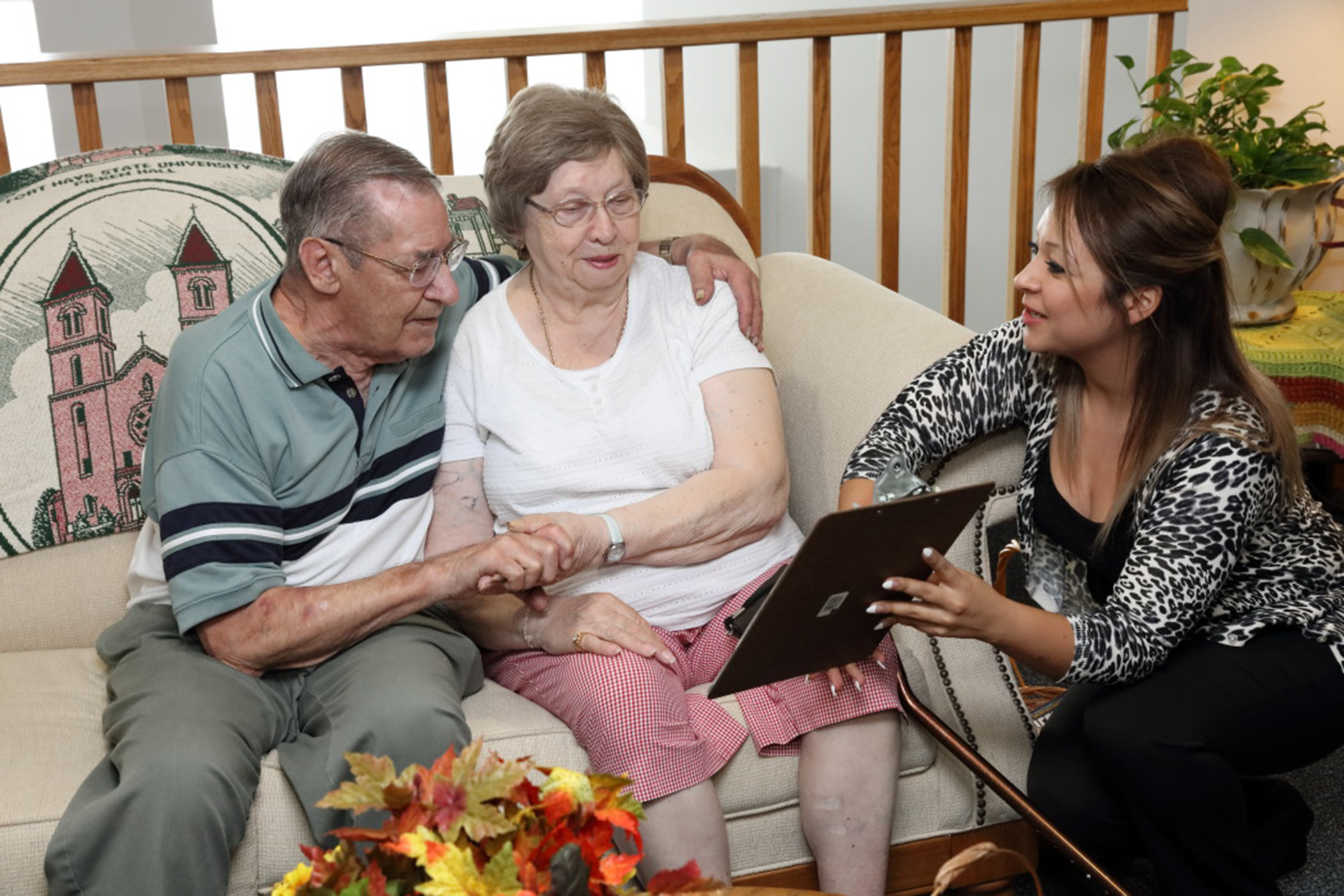
11/12/19 td/kb local, Western Kansas
HAYS, Kan. – Applications opened this fall for the new Master of Social Work program at Fort Hays State University, the latest initiative by the university to serve rural Kansas.
Fort Hays State’s program will carry a specialty in clinical social work.
Dr. Tim Davis, a professor in and chair of the Department of Social Work, said the FHSU Master of Social Work program takes advantage of the flexibility and outreach aspects of online education while maintaining a strong, hands-on clinical training emphasis. He said the department will accept up to 45 students this first year.
“The MSW program at FHSU will provide high quality and affordable solution to the demand for clinical social workers in Kansas, and improve access to health and mental health care for residents in the underserved rural areas of the state,” said Davis.
Three aspects of FHSU’s program are innovations designed to create opportunity in rural areas:
• Hands-on clinical skills training will be provided near where students live, thanks to creative use of online technology, the completion of face to face clinical intensives, and partnerships with agency field instructors.
• In addition to the standard requirement of 16 to 24 hours a week of clinical practicums, students will complete several short clinical rotations at health clinics, mental health clinics or other clinical sites at the start of the clinical practicum period.
• After graduation, the department will provide the program’s alumni with ongoing help in finding and providing the clinical supervision and training during the two-and-a-half to three-year residency-type training required to gain licensure as independent clinical social workers.
“This is particularly important for Western Kansas as FHSU is the only university located in the western half of the state,” he said. “There is an acute, unmet need for social workers at the master’s level and higher across Kansas, and particularly in the FHSU service area.”
As the program continues to grow, the department will expand its long-standing partnerships with communities and agencies in order to provide students with a broad foundation of knowledge through clinical experience in health and behavioral health as well as classroom training. Davis said clinical training partnerships will extend into post-MSW partnerships to provide the credentials that MSW alumni will need to gain independent licensure.
This is particularly important in the supervised clinical training required for independent licensure. Agencies in rural areas often do not have the personnel with the required credentials to supervise the post-graduate clinical training for licensure. Department faculty, who have the appropriate credentials, will use HIPAA compliant video conferencing systems to provide group supervision to the graduates at work in the clinical settings. In addition, the department will work with agencies to ensure robust ongoing training through the clinical training plan.
“We understand the challenges and rewards of living and working in rural Kansas,” said Davis. “We are committed, through education, scholarship and service, to training exceptional clinical social workers as well as supporting the agencies and communities in which they serve.”
The program offers two pathways to an MSW degree. The Regular MSW Program consists of academic coursework for four standard semesters, one summer term, and field practicum experiences across four regular semesters.
The Advanced Standing MSW Program is only available to students with a bachelor’s degree in social work from a Council of Social Work Education accredited social work program. This program can be completed in one calendar year of academic coursework and two semesters of field practicum experience.
Both degree paths will provide students the clinical training and educational requirements necessary to obtain licensure as a clinical social worker. Both began accepting applications in October. The advanced program will start in June 2020 and the regular program will start in August 2020.
Similar to the FHSU Bachelors of Social Work Program, FHSU will seek and secure CSWE accreditation for the MSW Program. As is the case with all new programs, said Davis, the MSW Program will launch in candidacy status and become eligible for full CSWE accreditation after two years.
Students who graduate from the program while it is in candidacy will retain a fully accredited degree upon the program’s approval of accreditation following the two-year candidacy period. The MSW Program’s candidacy status will neither delay nor prevent graduates from obtaining licensure, he said.
FHSU’s Bachelor of Social Work program is CSWE accredited.
As a primarily online program, all knowledge and theory components of the courses, as well as some practice skill development, will be delivered through online technology, while the hands-on clinical skills training will be completed in face-to-face clinical intensives, clinical rotations, and clinical field placements, said Davis.
Clinical intensive requirements in the advanced clinical year involve attendance at one session per semester, which consists of two and a half days of hands-on clinical training. To make the program more accessible to students, these sessions will be organized around the regions where the MSW students are concentrated. Clinical rotations and clinical practicums can be set up near where individual students reside.
Tuition and fee information for both programs, and comparisons with other MSW programs in the region are available on the departmental Facebook and Instagram pages and on the department’s webpage, www.fhsu.edu/socialwork. For more information, contact Dr. Tim Davis by email, [email protected], or by phone, 785-628-5395.
